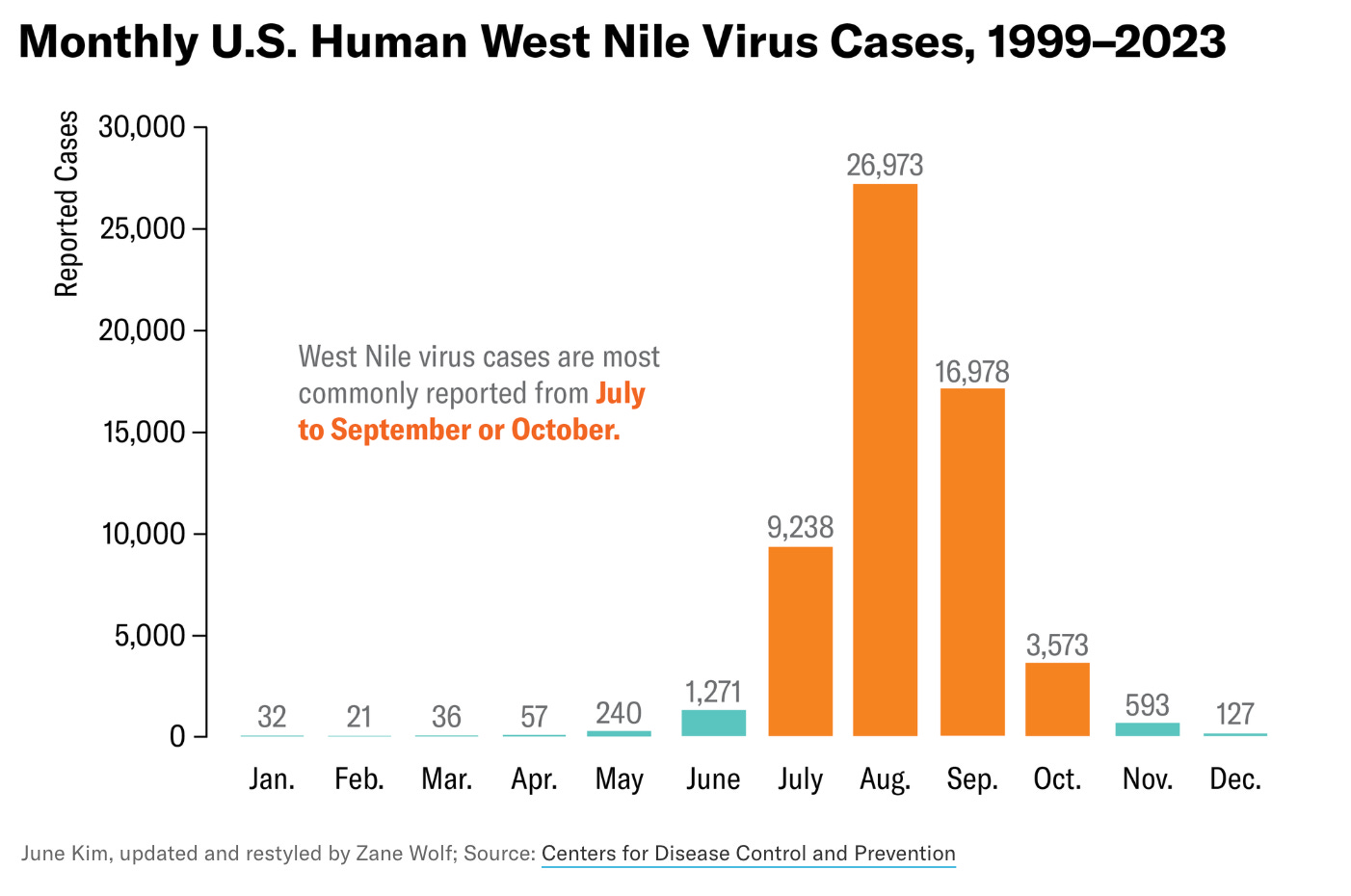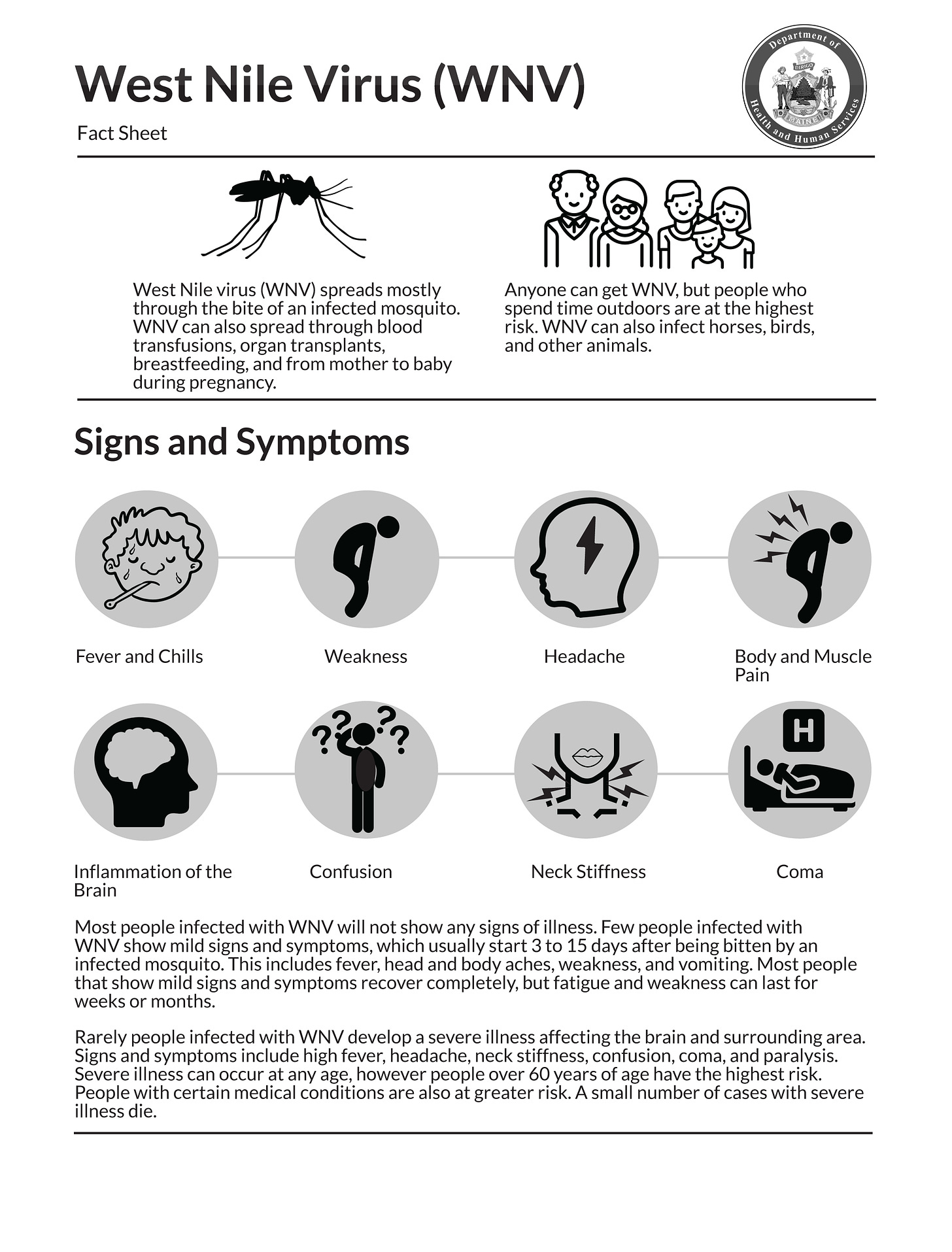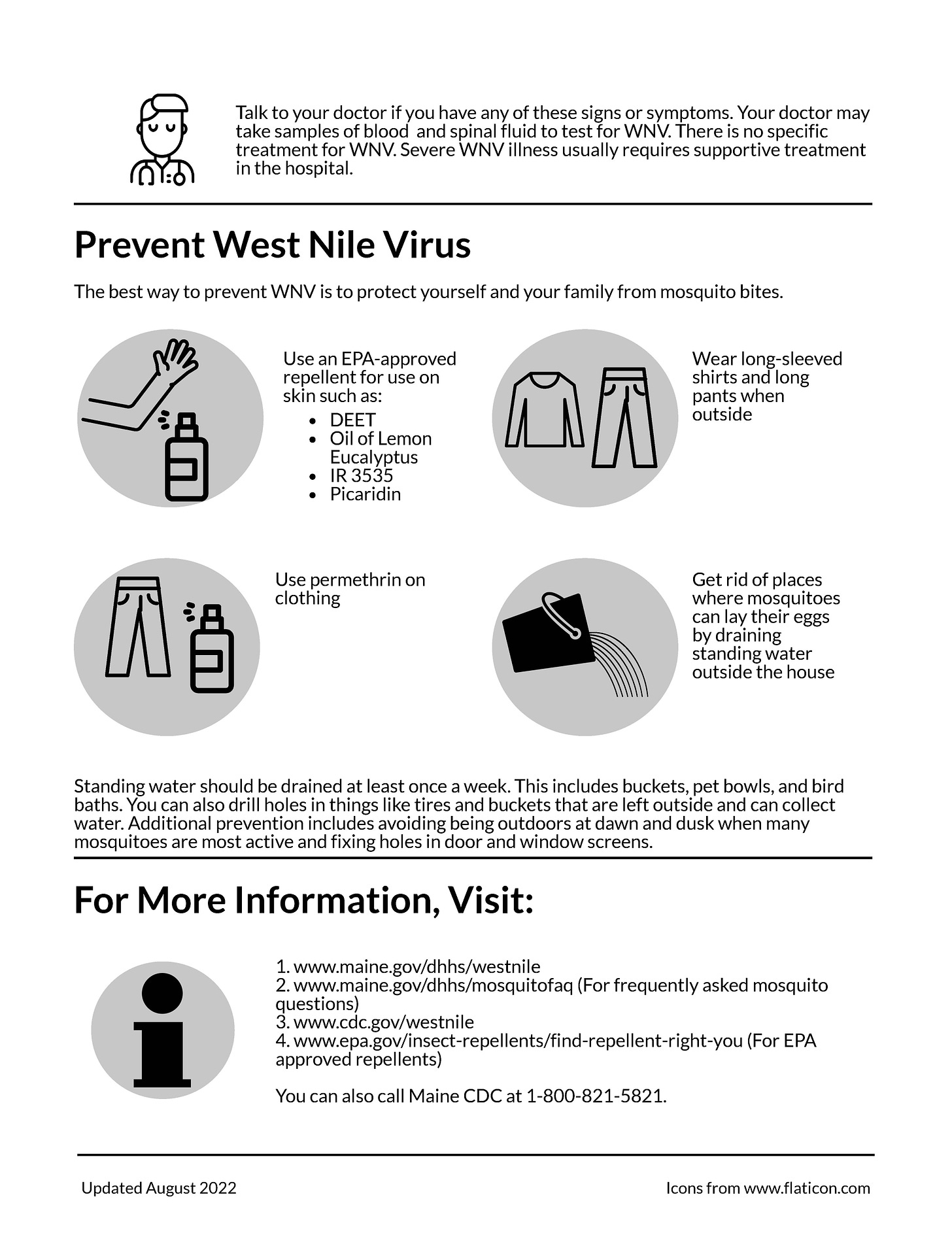West Nile Virus Identified in Bar Harbor
BAR HARBOR—According to Bar Harbor’s Health Officer Mike Gurtler, the town “has received notification from the Maine Centers for Disease Control and Prevention (ME CDC) that they have recently identified a case of West Nile virus in a crow from Bar Harbor.”
Gurtler said he was notified by the Maine CDC on Monday morning, August 19. He does not know when the infected crow was examined. There is currently no further information about the crow’s location when it died.
The virus does not present with symptoms in most people. Eight out of ten of those infected with the virus have no symptoms. Some will suffer from a “headache, body aches, joint pains, vomiting, diarrhea, or rash,” according to the CDC. “Most people with febrile illness due to West Nile virus recover completely, but fatigue and weakness can last for weeks or months.”
For every 150 people who are infected, one will develop a more severe illness that impacts their central nervous system.
According to the federal CDC, “Symptoms of severe illness include high fever, headache, neck stiffness, stupor, disorientation, coma, tremors, convulsions, muscle weakness, vision loss, numbness, and paralysis.”
“Nearly all cases occur between July and October, and the first human infections and deaths of the year have already been reported. That isn’t cause to panic—but it is reason to take precautions against the virus,” wrote Meghan Bartels of Scientific American, August 12.
BAR HARBOR IS NOT ALONE
In late July, the Maine Center for Disease Control and Prevention (Maine CDC) announced that six wild birds tested positive for West Nile virus (WNV). It was the earliest in the season that the agency had located the mosquito-borne virus in wild birds. They were found in multiple towns including five crows from Bangor, Bridgton, Fryeburg, Parsonsfield, and Sidney and a hawk from Yarmouth.
According to its release at the time, “The Maine Department of Inland Fisheries and Wildlife collected the birds as part of routine surveillance.”
The last human case of the virus in Maine was 2018.
According to that same press release, “in 2023, three animals and one mosquito pool tested positive for WNV in Maine.”
"While West Nile and other viruses carried by mosquitoes are rare, they can cause serious illness,” said Maine CDC Director Puthiery Va. "It's important that Maine people and visitors take precautions against bites, especially as these viruses are appearing earlier than usual this year. As you enjoy the Maine outdoors, protect yourself with simple steps and speak to your health provider promptly if you experience any symptoms."
The virus spreads via mosquito bites when that mosquito is infected. It is not transmitted from animal to human or from human to human.
According to the CDC, “Cases of West Nile have been reported in states across the continental United States. West Nile virus activity typically occurs during the summer months and into the fall. The annual number of reported West Nile cases can fluctuate widely, as a result of periodic epidemics. All residents of and visitors to areas where virus activity has been identified are at risk for infection, particularly people who work or participate in recreational activities outdoors.”
State and local health departments report to CDC through ArboNET.
“In addition to human disease, ArboNET maintains data on arboviral infections among presumptive viremic blood donors, veterinary disease cases, mosquitoes, dead birds, and sentinel animals,” the CDC states.
HOW TO HELP PROTECT YOURSELF FROM MOSQUITO-CARRIED VIRUSES.
According to the state CDC, you can take the following steps to help protect yourself from mosquito-carried viruses:
“Wear long sleeves and long pants.
“Use an EPA-approved repellent on skin and clothes. Always follow the instructions on the label.
“Take extra precautions at dusk and dawn when mosquitoes are most active.
“Use screens on windows and doors.
“Drain artificial sources of standing water around the home. This is ideal habitat for mosquitoes to lay eggs.
“Take steps to prevent mosquito bites when traveling.”
According to the town of Bar Harbor:
“In the event of an arbovirus being present in a community, Maine CDC suggests the following recommendations:
“Draining sources of artificial standing water where mosquitoes can lay their eggs
“Covering exposed skin when outdoors
Long-sleeved shirts, pants, and socks
Using Environmental Protection Agency (EPA) approved repellents
DEET, Picaridin, IR3535, or Oil of Lemon Eucalyptus on skin
Permethrin on clothing
Always follow the instructions on the product’s label
“Avoid being outdoors during dawn/dusk when mosquitoes are most active
“Use screens on windows and doors to prevent mosquitoes from entering buildings
Repair torn screens.”
LINKS TO LEARN MORE
Mosquito surveillance reports including all positive results are updated weekly at www.maine.gov/dhhs/vectorborne.
View answers to frequently asked questions at www.maine.gov/dhhs/mosquitofaq.
Learn about repellents at www.maine.gov/dacf/php/gotpests/bugs/mosquito.htm.
Educational and guidance materials about mosquito-borne diseases have been posted on the town’s website. More materials are available on Maine CDC’s website and may be ordered through www.maine.gov/dhhs/order.
Further information is available from the Town’s Health Officer, Mike Gurtler, at: mgurtler@barharbormaine.gov. Additional information is also available from the Maine CDC, Division of Disease Surveillance at: 800-821-5821.
If you’d like to donate to help support us, you can, but no pressure! Just click here.
If you’d like to sponsor the Bar Harbor Story, you can! Learn more here.








